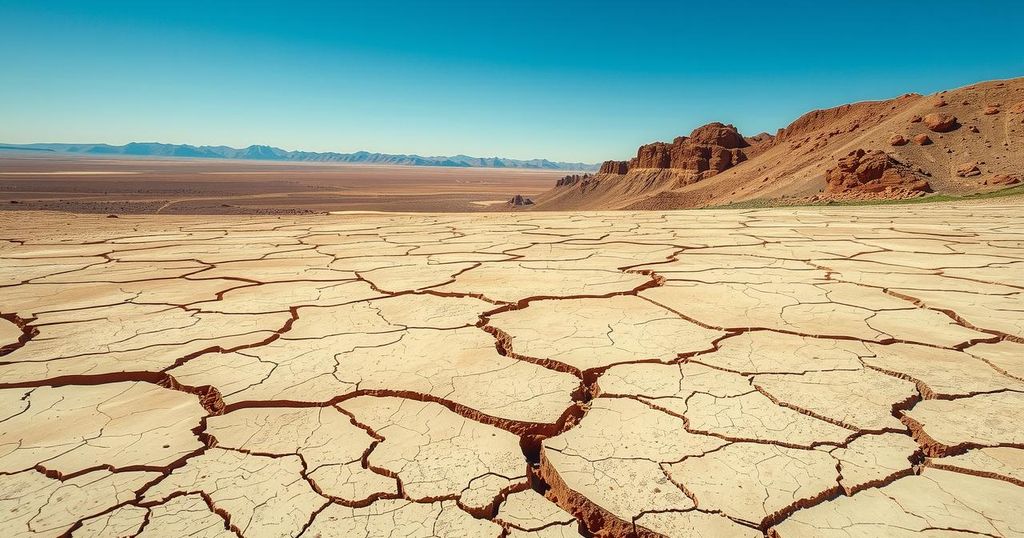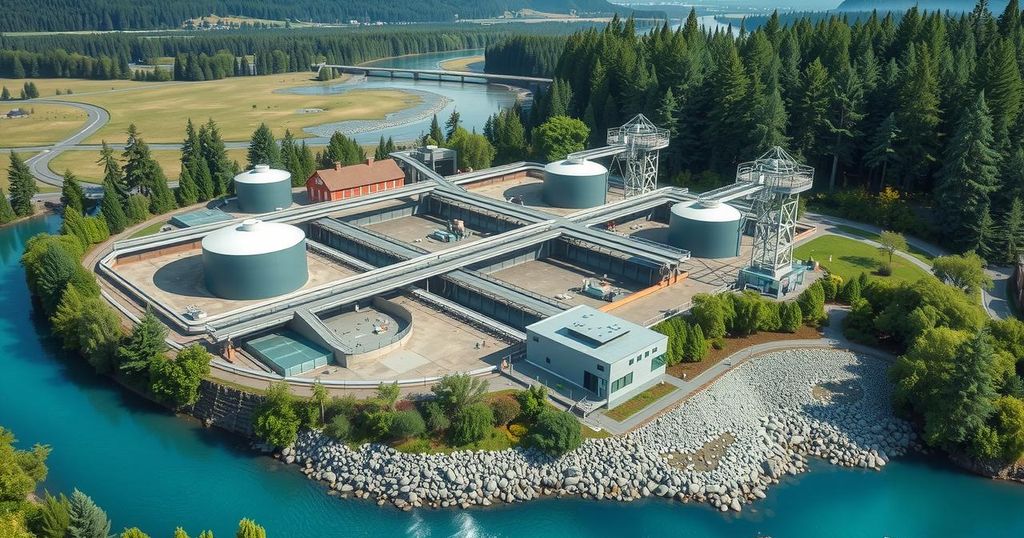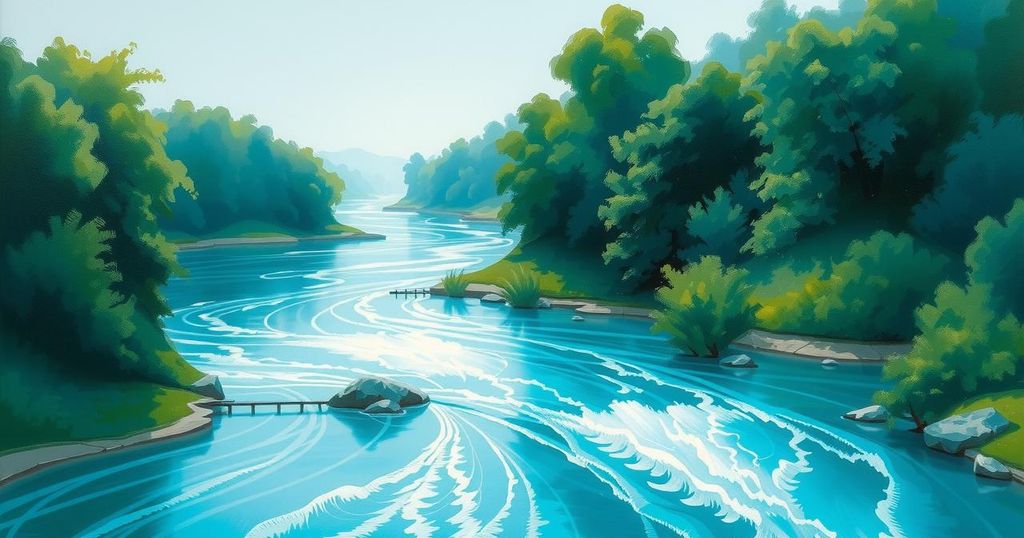South Africa’s water crisis, driven by mismanagement and corruption, is causing severe supply issues that affect daily life and industry. Notable figures such as John Steenhuisen attribute these challenges to aging infrastructure and lack of foresight. Solutions under consideration include private sector involvement and reforms aimed at restoring public trust and ensuring reliable water access.
South Africa is currently grappling with a severe water crisis that is affecting both daily life and industrial operations nationwide. Justice Malala, a prominent journalist, shared distressing encounters from Hammanskraal, where poor water treatment during a cholera outbreak resulted in 20 fatalities. Residents turned to alternative sources for clean water due to inadequate municipal support, making shopping trolleys impractical for carrying supplies as families resorted to large canisters.
As of March 21, 2025, Johannesburg’s residents are facing significant water supply challenges, with cuts lasting up to 86 hours. This situation not only complicates basic household necessities but also creates obstacles for vital industries such as car manufacturing and food processing. The crisis is exacerbated by ongoing mismanagement and under-investment, according to John Steenhuisen, leader of the Democratic Alliance. He lamented, “The system has started to reach a tipping point where it’s failing massively,” emphasizing that despite full dams and reservoirs, taps remain dry.
Steenhuisen further criticized municipal governments for inadequate infrastructure maintenance, noting, “You have water, electricity, and sanitation services that are invisible because they’re all underground… It’s very tempting to say, ‘We’d much rather have a community hall than actually replace the 2km of piping.’” Such negligence has prompted a detrimental management approach toward water resources.
In South Africa, the average daily water consumption is about 237 liters per person, significantly more than the global average of 173 liters. The country suffers from inadequate water treatment and recycling capacities. Former Minister of Water and Sanitation, Senzo Muchunu, highlighted that aging infrastructure leads to leakage rates of around 35% in Gauteng. “We are a water-scarce country, but we still have just enough water, provided that municipalities stop leaking water the way they are doing now,” stated Muchunu.
The roots of this crisis can be traced back to decisions made under former President Jacob Zuma from 2009 to 2018, when corruption and misallocated funds compromised essential projects. An anonymous finance ministry official disclosed a concerning connection between political practices and a lack of service quality in maintaining localized contracts.
Muchunu also pointed out the emergence of a “water mafia,” where entities corrupt access to clean water by sabotaging supply lines and profiting by providing tanker deliveries. One businessman described the situation: “There’s a water ‘mafia.’ They cut the line and then they come around with tankers of water,” illustrating the pressing need for a systemic overhaul in water management policies.
To address the crisis, the government is pursuing potential solutions that could include private sector involvement. The establishment of the National Water Resources Infrastructure Agency aims to enhance oversight and facilitate private investment in water infrastructure. Steenhuisen noted, “The idea now is to bring in private sector players and ensure that municipalities ring-fence revenues. A certain proportion must go to maintenance.”
Previous collaboration between the government and private entities has led to improvements in sectors such as energy, suggesting a similar approach may benefit the water sector. Senzo Muchunu asserted, “People want water now,” emphasizing the immediate need for effective solutions to past failures. The anticipated reforms coupled with required accountability are crucial in mitigating the current crisis.
To restore public confidence and guarantee access to safe water for all citizens, immediate actions in South Africa’s water management system are essential. The decisions made today will have long-lasting implications on water governance and accessibility for future generations.
In summary, South Africa’s ongoing water crisis is a multifaceted issue rooted in mismanagement, corruption, and inadequate infrastructure. The alarming statistics of water theft and infrastructure decay, particularly in Gauteng, call for urgent reforms and the involvement of the private sector to ensure efficient water delivery. As highlighted by various leaders, immediate systemic changes are critical for restoring public trust and securing essential water access for all citizens, thus shaping a sustainable future for the nation.
Original Source: evrimagaci.org




